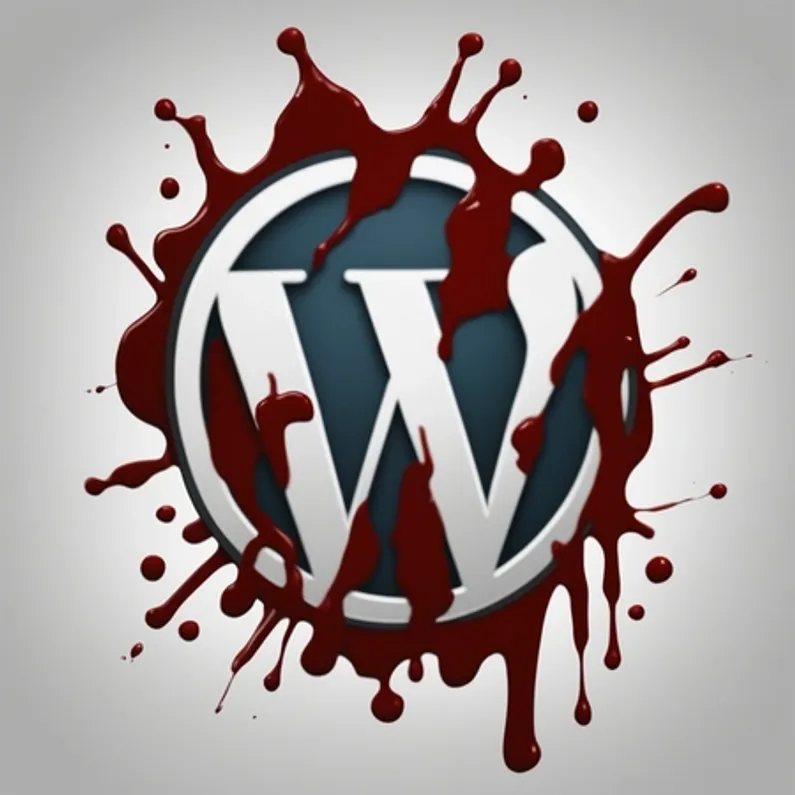
Why Your WordPress Website is Killing Your Business
Your website is the digital storefront for your business. It’s often the first place potential customers interact with you, and if your website is slow, hard to navigate, or doesn’t show up on Google, it’s costing you sales. While popular platforms like WordPress, Wix, and SquareSpace offer easy-to-use page builders, they aren’t always the best choice for every business. In fact, they could be holding you back in several key areas.
1. Poor SEO: What Does That Even Mean?
SEO, or Search Engine optimisation, is what helps your website rank higher on search engines like Google. If your site isn’t optimised for SEO, it’s like trying to run a race while carrying a backpack full of bricks - you’re not going to get very far. WordPress comes with a lot of bells and whistles, but often these features aren’t optimised for search engines right out of the box.
Here’s why:
- Default settings: WordPress may not automatically set up key SEO features, such as meta descriptions, structured data, or optimised URLs.
- Plugin overload: Many businesses rely on plugins like Yoast SEO to handle optimisation, but over time, multiple plugins can conflict with each other, resulting in messy code that search engines don’t like.
Google’s algorithms favour clean, fast websites that are easy to read and understand. Unfortunately, most WordPress themes and plugins don’t provide that. Without good SEO practices in place, your website might not show up when people search for your products or services, meaning you’re losing potential customers without even knowing it.
2. Bloated Code: Why Too Many Plugins Are a Bad Thing
Every WordPress website runs on a combination of themes and plugins. Think of plugins as apps that you install to give your website extra features, like a contact form or a photo gallery. Sounds great, right? The problem is that each plugin adds extra code to your website. The more plugins you add, the more bloated and sluggish your site becomes.
Why is bloated code bad for your business?
- Slow load times: Each line of unnecessary code makes your website slower. Customers won’t stick around to wait for your website to load — “nearly half of users won’t wait longer than two seconds for a website to load” (Haan, 2024).
- Difficult maintenance: When your website is full of unnecessary code, it becomes harder to maintain. You’ll need a developer just to figure out what’s causing the problem when things break (and they will).
On a custom-built website, each feature is carefully coded to work together seamlessly. There’s no excess or redundant code, which means a faster, leaner website that works better for your business.
3. Slow Loading Times: Why Every Second Counts
Here’s a staggering fact: for every second your website takes to load, you could lose 7% of your potential conversions (Dooley, 2012). That’s right—slow websites drive customers away. In today’s world, people expect things to happen fast. If your website doesn’t load quickly, they’ll go somewhere else.
WordPress websites often suffer from sluggish load times due to:
- Heavy themes: Many WordPress themes come packed with features that you might not even need, but they still take up bandwidth and slow down your site.
- Unoptimised images: Many WordPress users don’t realise that uploading huge images directly to the site without compressing them first can make a page take forever to load.
By contrast, a hand-coded website is built to be lightweight and efficient. We optimise everything - from the images to the scripts running in the background, ensuring that your site loads quickly and keeps customers engaged.
4. Low Google PageSpeed Scores: Why They Matter
Google PageSpeed Insights is a tool that evaluates how well your website performs in terms of speed and user experience. If your WordPress site has a low score, it’s a red flag. Google uses this score as one of its ranking factors, so a low score could mean you’re ranking lower on search results than your competitors, costing you valuable traffic.
Many WordPress websites get low scores because of issues like:
- Too many scripts: Themes and plugins often load multiple scripts that can slow your website down.
- Unoptimised fonts and resources: Fancy fonts and media that aren’t optimised for the web can drastically affect your score.
A low PageSpeed score can lead to poor rankings, meaning fewer people find your site, which means fewer potential customers. A custom-coded website, on the other hand, is designed with performance in mind, often achieving 95+ scores on PageSpeed tests, giving you a competitive edge in search rankings.
The Solution: A Custom-Built Website Tailored to Your Needs
Here at North West Web Designs, we focus on creating websites that work for your business, not against it. Every site we build is hand-coded from the ground up, with these key benefits:
- Super fast load times: No unnecessary features or plugins slowing down your site.
- Perfect SEO optimisation: Every aspect of your site is designed with search engines in mind, helping you rank higher on Google.
- Google PageSpeed scores near perfection: Our websites consistently score 95+ on Google’s performance tests, meaning you won’t have to worry about slow loading times or poor rankings. See for yourself at Google’s PageSpeed Insights
- Maintenance-free performance: Without bloated code or plugin issues, your website will be easier to maintain, saving you headaches and costs down the road.
Conclusion
The bottom line? A custom-built website will not only enhance your online presence but will help drive more customers to your business and keep them there. Page builders might seem like easy options at first, but in the long run, they could be costing you far more than you realise.
Ready to ditch your sluggish WordPress site for a faster, leaner, custom-built solution? Contact us today to see how we can help your business grow online!
References
Dooley, R. (2012, December 4). Don’t Let a Slow Website Kill Your Bottom Line. Forbes. Retrieved from https://www.forbes.com/sites/rogerdooley/2012/12/04/fast-sites
Haan, K. (2024, June 4). Top Website Statistics For 2024. Forbes. Retrieved from https://www.forbes.com/advisor/business/software/website-statistics/



